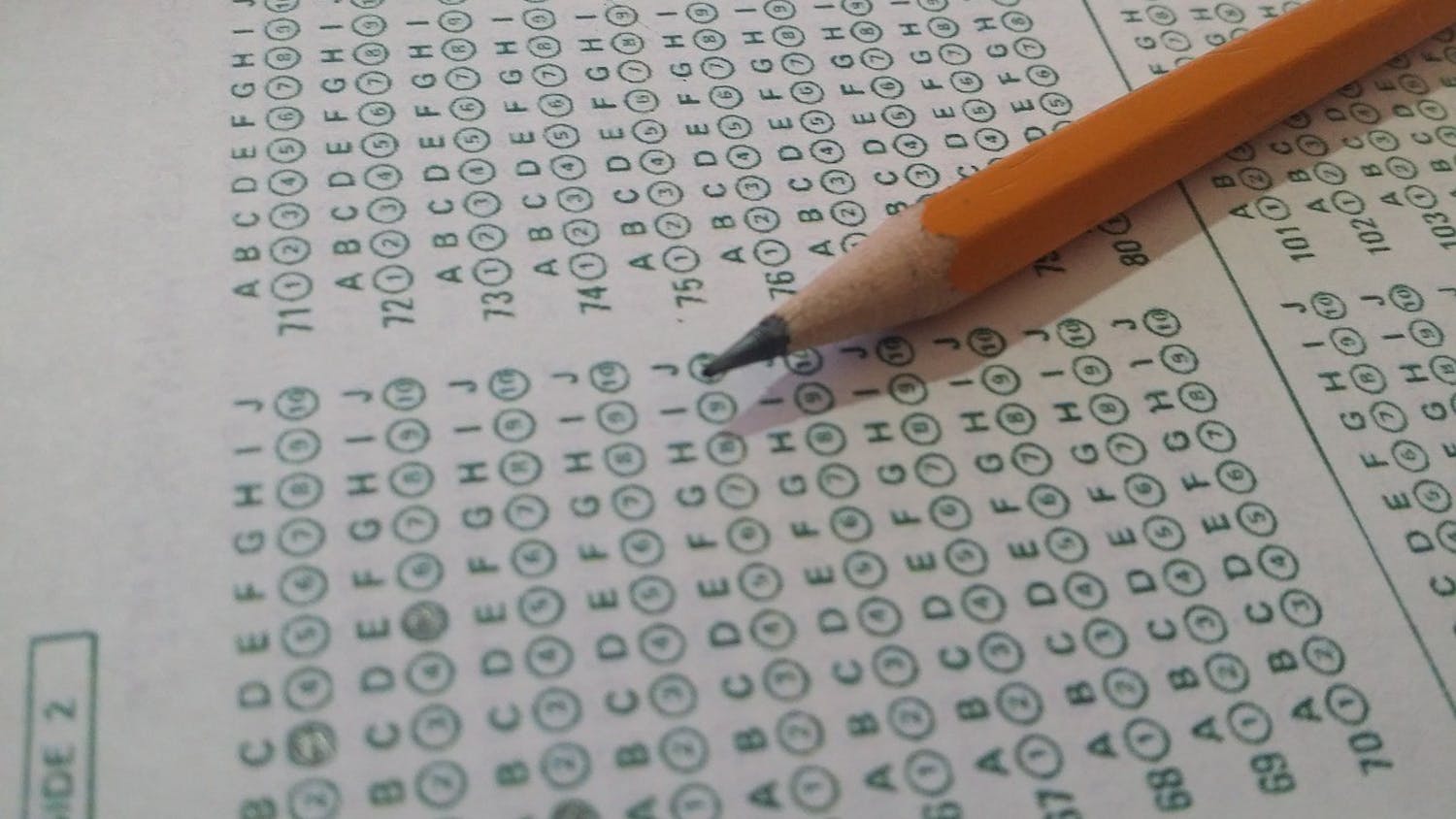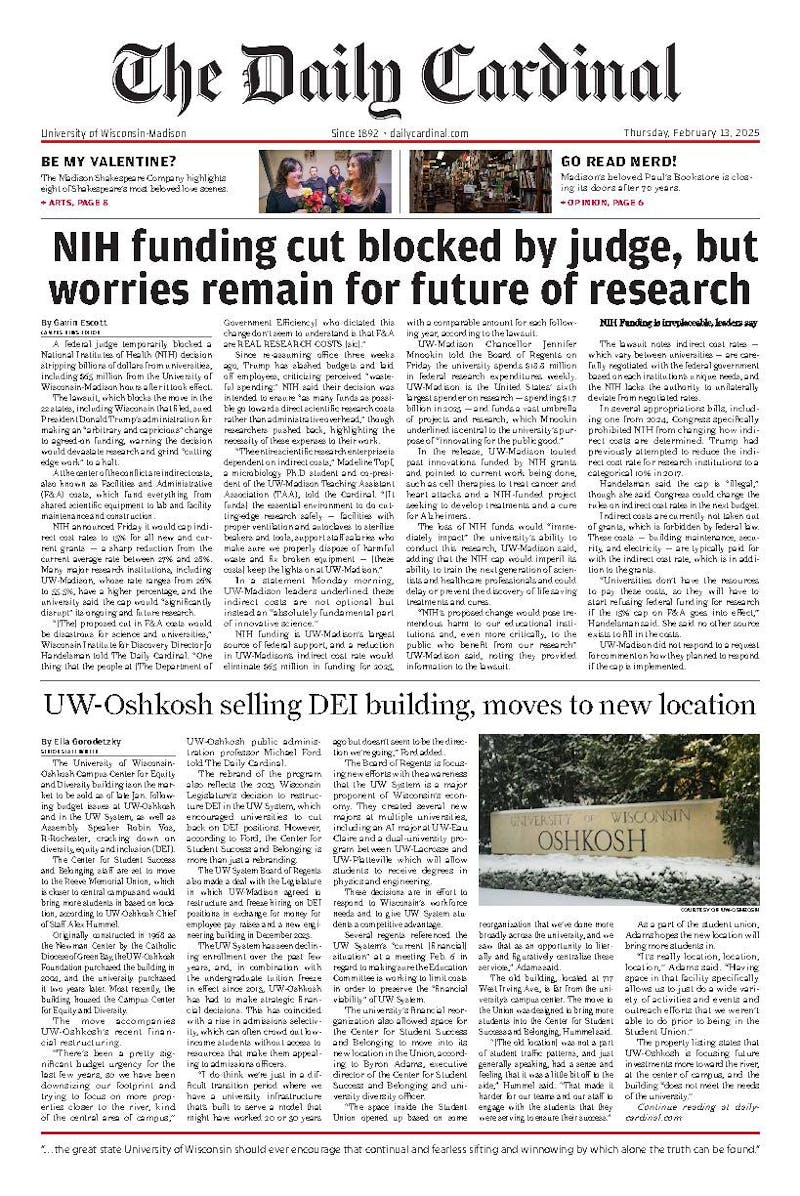One important point can sometimes be lost amid discussions about the Associated Students of Madison: that the organization has significant control over $2.5 million in student fees.
Those funds, commonly called segregated fees, must be paid by every student on campus and cost $445.04 each semester for fall 2008 and spring 2009, according to the Office of the Registrar.
In an investigation into how those fees are spent, The Daily Cardinal looked to see if there was oversight, accountability and transparency in funds that students expect to be used as efficiently as possible.
What students have control over
Of the $445.04 paid per student, ASM only has direct control over a portion of the funds. Roughly 78 percent of the fees are deemed nonallocable, with students only able to advise the chancellor's office on how the money is spent. These fees cover items like contracts and building costs. But that leaves over $2.5 million in funds that are directly controlled by students, though the chancellor must approve any of those student decisions.
Yet the full 33-member ASM Student Council rarely deals with the issue of segregated fees. The majority of funding decisions are handled by the Student Services Finance Committee, a group within ASM that deals with budget decisions relating to student groups and ASM's internal budget. SSFC currently has 10 members.
When SSFC presented their decisions to the full ASM Student Council on how much funding student groups should receive, only the funding of Engineers Without Borders was debated. The other budgets were passed largely without comment during the Feb. 4 meeting, despite some groups receiving no funding and other groups keeping significant increases in money.
Examples include the group F.H. King receiving almost $10,000 more than it received the previous year and the College of Agricultural and Life Sciences Student Council having its $59,000 budget completely cut, yet little debate was offered by average ASM representatives.
Kurt Gosselin, chair of SSFC at the time, said it was fairly common for the full Student Council not to make adjustments to the group budgets presented by SSFC.
""They realize that since they haven't had the presentations [from the groups] or sat through the two or three hours of debate that it's not their place to make individual line-item changes,"" he said.
That means SSFC, where the number of members over the past year has fluctuated between five and the current 10, has a large amount of discretion in terms of how the millions in segregated fees are spent and which groups receive funding.
Looking for oversight
Even when simply looking at how student groups use the money given to them, questions arise over whether student funds are being spent as responsibly as possible.
ASM is supposed to fill the position of GSSF accountability liaison. GSSF stands for General Student Services Fund, the pool of money used to fund service-providing registered student groups. The liaison position is intended to make sure student groups are using their funds responsibly and in accordance with university guidelines.
However, the position has remained unfilled this year. Although SSFC members have some interaction with student groups, no one has sole responsibility for making sure they are in compliance with university policies.
""No major issues came up this year due to a lack of the filled position, but it did become a burden on SSFC leadership, who already commit up to 40 hours a week working on SSFC-related matters,"" SSFC Chair Carl Fergus said in an e-mail. ""Next year, we hope that by making this a paid student hourly position that it will be filled, and in fact three people have already approached me with an interest in the position.""
Groups currently do have to provide attendee lists for events, along with midyear and end-of-the-year reports on spending.
The GSSF accountability liaison would also be responsible for checking to see that timesheets were accurate and hours worked by group members were verified. This is important, considering GSSF group leaders typically earn over $9 an hour, sometimes as much as $6,000 over two semesters.
The person would also make sure groups used the least-costly methods of purchasing equipment and that no unapproved or illegal purchases were made, though university financial specialists also help verify whether purchases are legal.
There are other areas where SSFC is unable to monitor or check up on how student groups operate. According to the agreement that groups must sign before they receive funds, SSFC or university financial specialists will conduct periodic audits or on-site checks of groups to see if money is being spent appropriately.
Gerald Kapinos, president of GSSF group Vets for Vets, said they never had on-site checks performed on their group, nor did James Hill, president of another GSSF group, Collegians for a Constructive Tomorrow. Bradley Schmock, finance and office coordinator for the GSSF group Promoting Awareness, Victim Empowerment, also said there were no site checks or periodic audits.
Greta Hughes, internal affairs and development coordinator of GSSF group Student Leadership Program, said they underwent no periodic audits either.
Jenny Underwood, station manager for the student radio station WSUM, said she had given equipment inventories to SSFC over the past year.
Fergus said in an e-mail that due to the amount of time spent on other SSFC duties, he and other SSFC members did not do on-site checks or periodic audits of group equipment. However, he said he does try to stay in close contact with GSSF groups.
Check back tomorrow in The Daily Cardinal for a look at how groups are spending the student funds.






